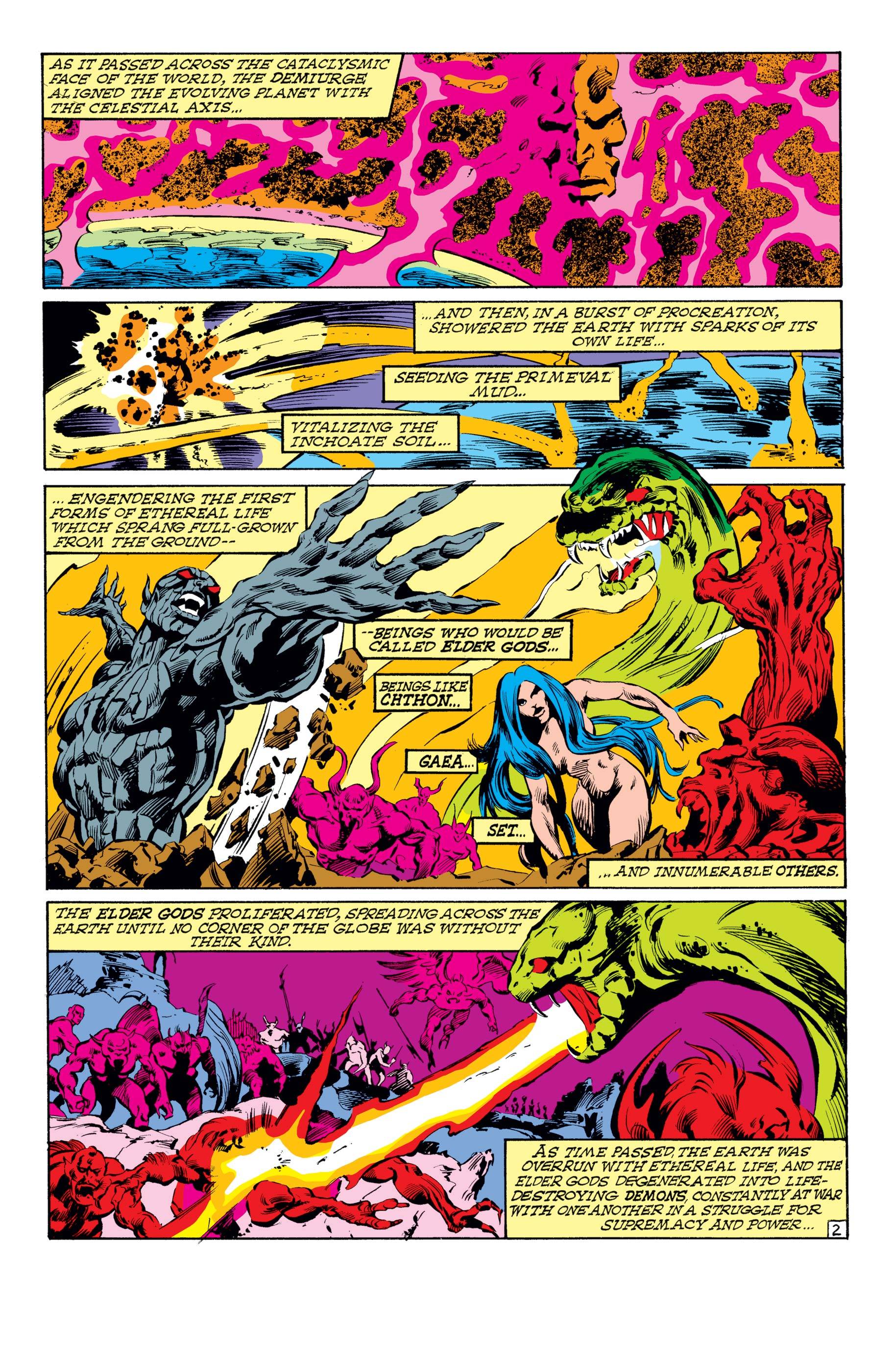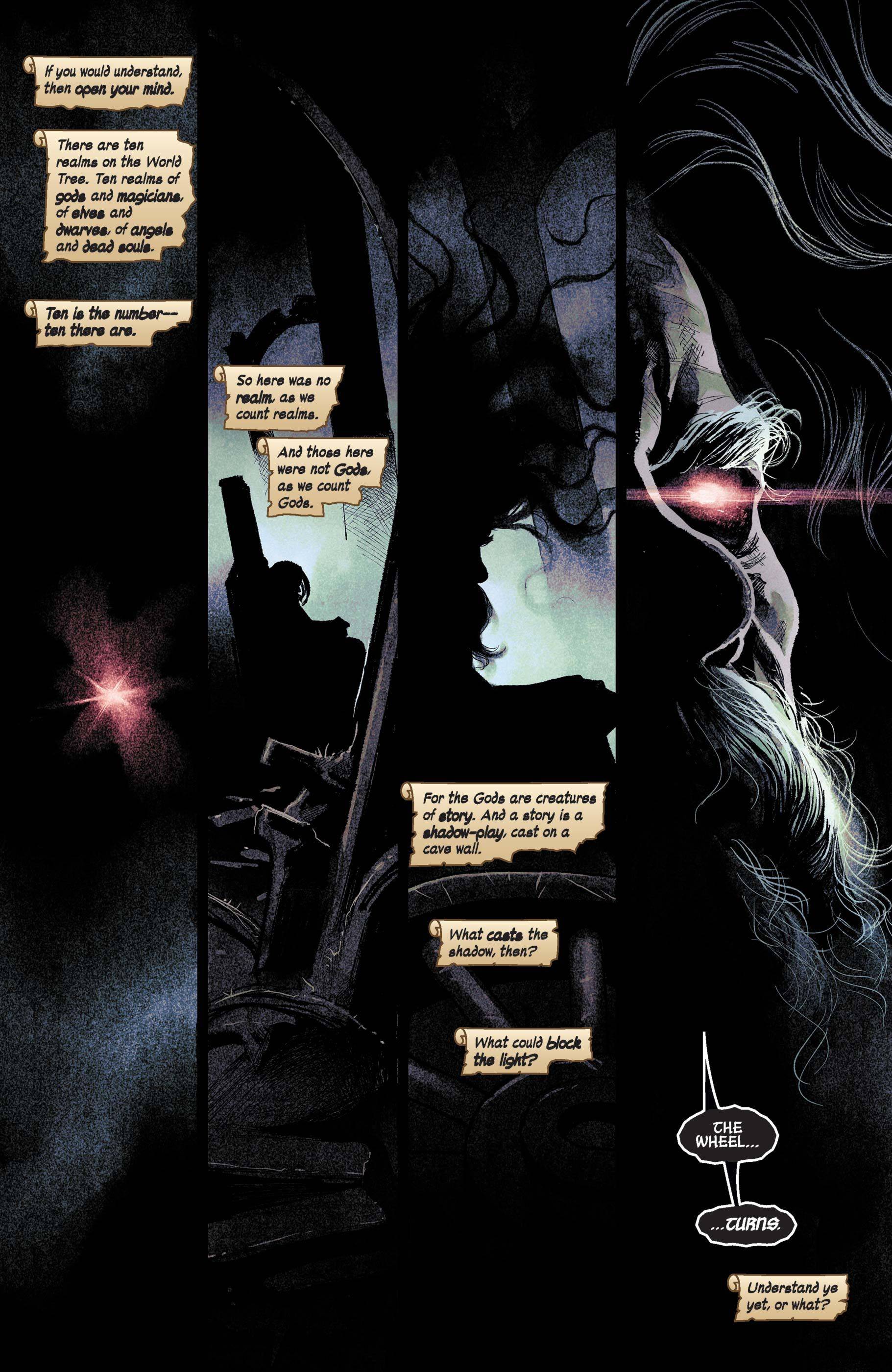MCU
Gaea Recognized as Marvel’s First Hero in Thor’s Birth Mother Story

In Al Ewing’s groundbreaking Immortal Thor saga, a riveting revelation unfolds as the Elder Gods return, bringing to light Thor’s mother, Gaea, as the inaugural hero in the Marvel Universe. This immersive narrative not only explores the roots of life on Marvel’s Earth but also delves into the profound cyclical nature of the gods, providing a metatextual commentary on the recurrent beats found in superhero storytelling.
The Immortal Thor #5, crafted by Al Ewing and brought to life by the skilled hands of illustrator MartÍn Cóccolo, introduces readers to the enigmatic Utgard-Gods. These ancient beings, predating the more familiar Asgardians, become a focal point in unraveling the intricate web of Marvel’s cosmic mythology. Gaea, Thor’s mother, emerges as the linchpin in this cosmic drama, her role pivotal in mitigating the warlike and brutal tendencies of the Elder Gods.
The Elder Gods, shaped by the Demiurge, the living embodiment of Earth’s life-energy, once spanned across the Earth. However, their descent into savagery prompted Gaea to conceive Atum, also known as the Demogorge, the sun god whose emergence led to the cataclysmic destruction of most Elder Gods. Gaea’s recognition as Marvel’s first hero is a testament to her crucial role in quelling the chaos wrought by these ancient deities.

The intricate mythos of the Elder Gods was initially introduced in 1982’s Thor Annual #10, penned by Mark Gruenwald and Alan Zelenetz. Immortal Thor #5 expands on this foundation, weaving a narrative tapestry that harks back to the dawn of existence, exploring the cyclical conflicts that have defined the Marvel Universe.
The term “Demiurge” itself is a nod to ancient Greek mythology, where it was initially described by philosophers like Plato as the creator of the universe. In later interpretations, particularly in gnostic sects, the Demiurge became associated with a false god responsible for creating the material world.
The narrative not only explores the cosmic struggles of the Elder Gods but also introduces a fascinating metatextual layer. Gaea, as the only Elder God to perceive the cyclical pattern of conflicts, becomes a poignant commentary on the repetitive nature of superhero comics. This thematic consistency is a hallmark of Al Ewing’s work, as seen in previous titles like Loki: Agent of Asgard and Defenders Beyond, where Loki transforms into the God of Stories, challenging the cyclicality of mainstream superhero storytelling.

As Immortal Thor unfolds, the intricate dance between Gaea and Loki’s desires for a better storytelling cycle adds another layer of complexity. Questions arise about their potential alliance or rivalry, with the role of Thor, the titular character, yet to be fully unveiled. The Immortal Thor #5, a mesmerizing installment available from Marvel Comics, propels readers deeper into the cosmic and metaphysical realms of the Marvel Universe.
We bring out some of the most well-known MCU collection, all of which are available at reasonable costs. Visit our link now if you are interested in the MCU collection


Peter Parker, T’Challa, Carol Danvers, Scott Lang, Stephen Strange
